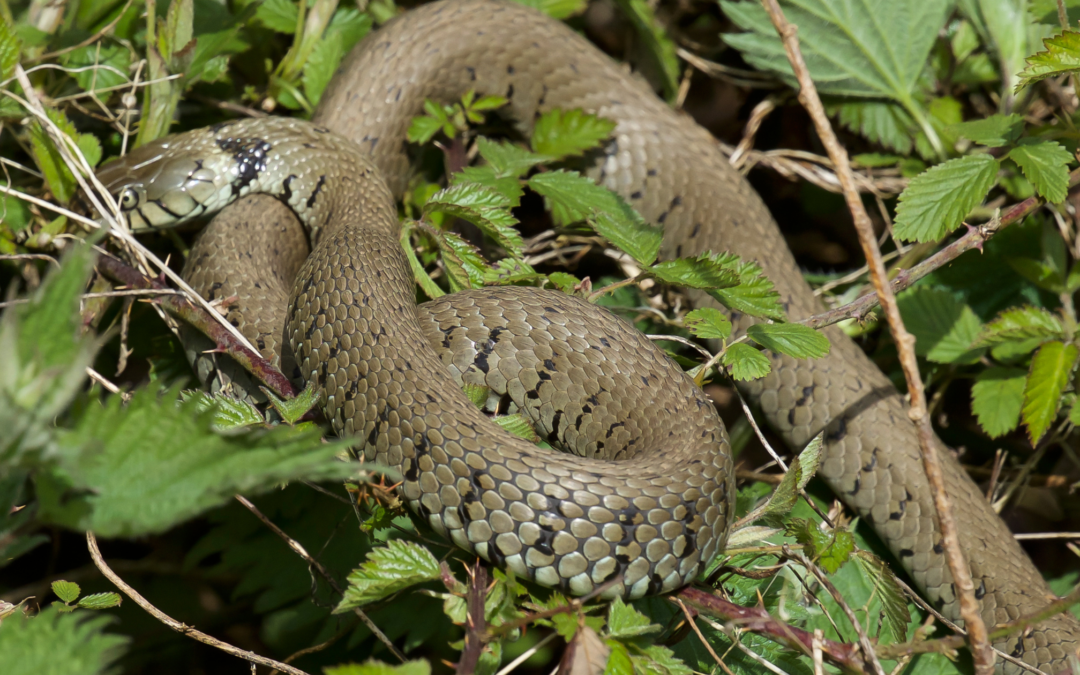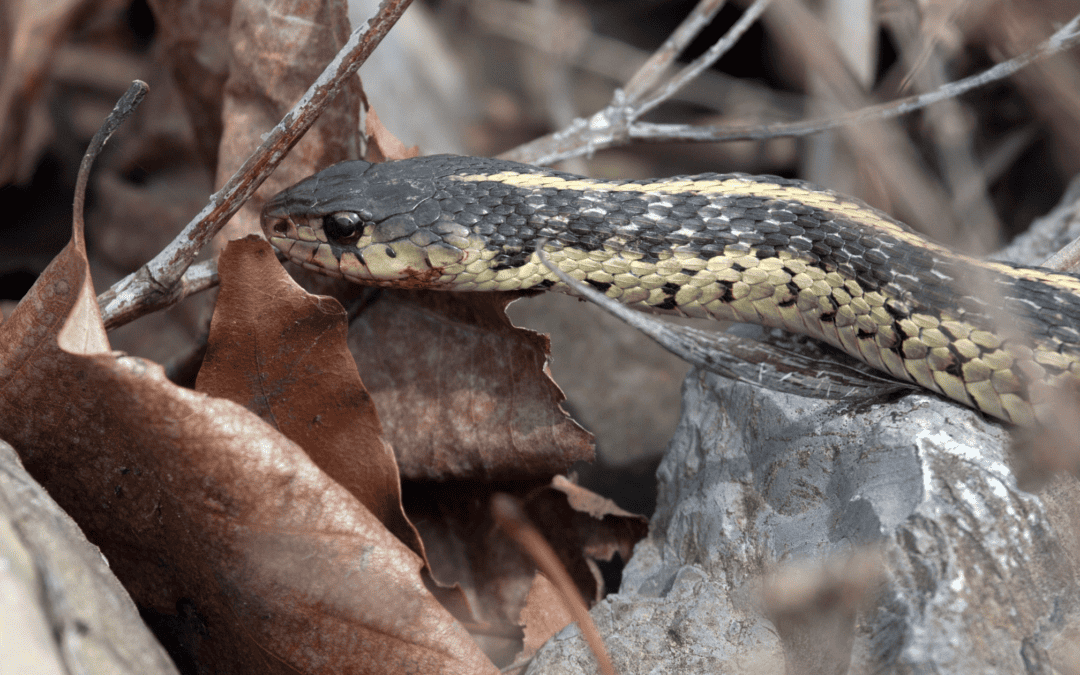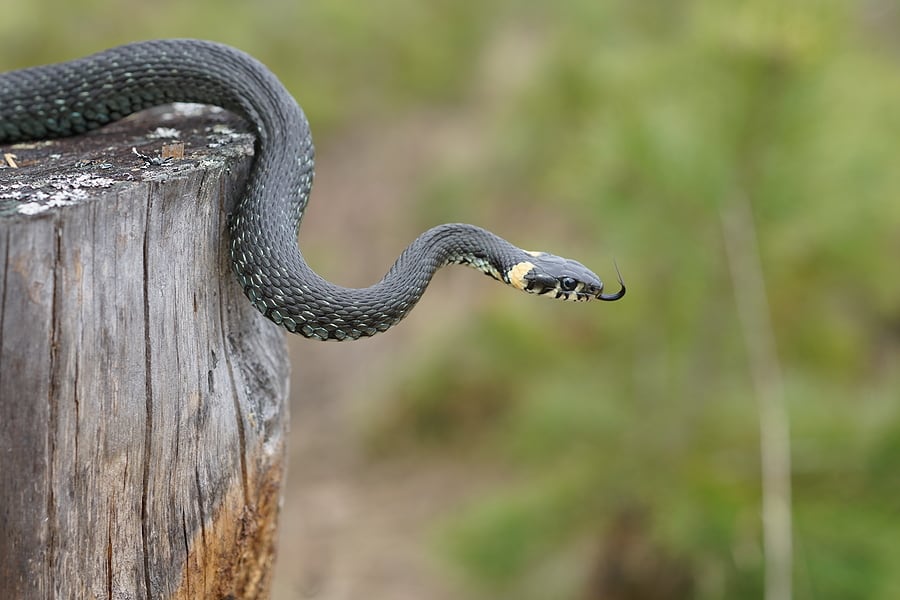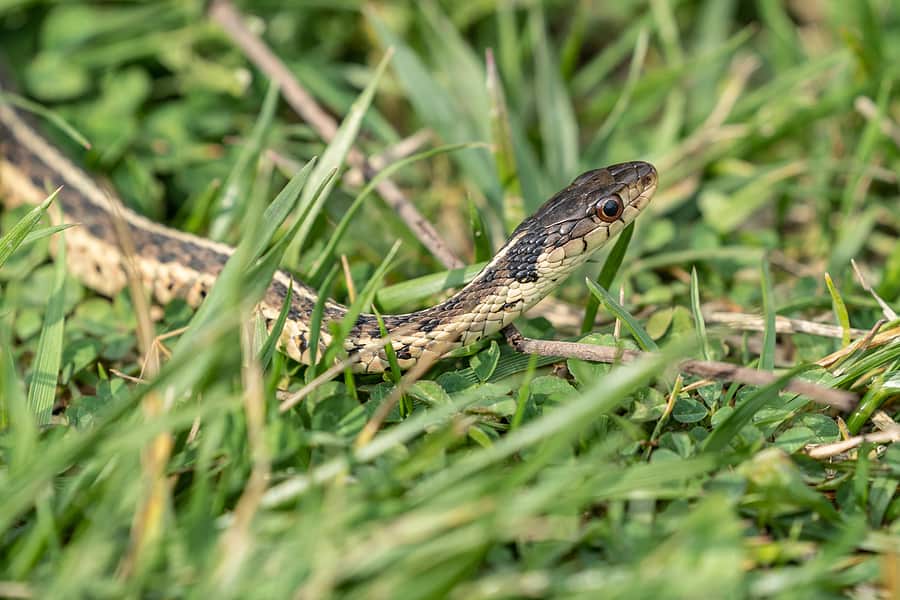READY TO GET STARTED?
REQUEST A FREE ESTIMATE
Fill out the form below or call (888) 466-7849 for a free, no-obligation estimate.

As the weather warms up in Georgia, so does the activity of one of the area’s most misunderstood creatures: snakes. With snake season approaching, it’s essential to take proactive steps to ensure your yard is prepared for these slithery visitors. Whether you’re concerned about encountering venomous species or simply want to minimize their presence around your home, proper preparation and understanding are key. Here’s everything you need to know to get your yard ready for snake season:
Snake season in Georgia typically begins in the spring, around March or April, and extends through the summer months until around September or October. During this time, snakes become more active as they emerge from hibernation and seek food, mates, and suitable habitats.
Georgia is home to a variety of snake species, both venomous and non-venomous. Some of the most common snakes you may encounter include:
While most snakes in the region are harmless and play a vital role in controlling rodent populations, it’s essential to be able to identify venomous species and exercise caution when encountering any snake.
Whether you’re gardening, hiking, or simply enjoying time outdoors, it’s crucial to practice snake safety to minimize the risk of encounters. Here are some tips to keep in mind:
While it’s impossible to completely eliminate snakes from your property, there are steps you can take to make your yard less attractive to them:
If you’re concerned about snakes or other wildlife on your property, don’t hesitate to reach out to a professional pest control company near you for assistance. Our team of experts specializes in humane snake relocation, snake control, and wildlife management services tailored to your specific needs. Request a free wildlife control quote today and enjoy peace of mind knowing your yard is in good hands.
As snake season approaches, taking proactive steps to prepare your yard can help minimize encounters and ensure a safe and enjoyable outdoor experience for you and your family. By understanding common snake species, practicing snake safety, and implementing effective deterrents, you can create a snake-friendly environment that strikes a balance between coexistence and control.

Georgia, with its diverse wildlife, is home to a variety of snake species. As temperatures begin to drop, many people wonder if snakes, like other animals, hibernate during the winter months. In this blog post, we’ll explore the intriguing world of snake hibernation, the differences between hibernation and brumation, and provide valuable tips for effective snake control in your Georgia home.
Contrary to popular belief, snakes don’t undergo true hibernation. Instead, they enter a state called brumation. While hibernation involves a deep sleep, brumation is more of a slowed-down metabolic state. Snakes become less active, but they are not completely dormant. This adaptation allows them to conserve energy during colder months, making it easier to survive until warmer temperatures return.
Brumation typically occurs when temperatures drop, signaling snakes to find a sheltered spot to wait out the cold season. Unlike mammals in hibernation, snakes may occasionally emerge during milder days to bask in the sun and regulate their body temperature. Understanding this behavior is crucial for effective snake control, especially if you want to keep these slithering creatures away from your property.
Concerned about snakes on your property? Our expert pest control team in Georgia is here to help! Whether you need snake removal or wildlife management, we offer effective and humane solutions. Request a free pest control quote today to safeguard your home and enjoy a snake-free environment.
Understanding the habits of snakes during colder months is essential for effective snake control in Georgia. By implementing these tips and being proactive, you can reduce the likelihood of encountering snakes on your property. For comprehensive snake removal and pest control services, reach out to an experienced pest control company. Enjoy peace of mind in every season with our reliable wildlife management solutions.
Request your free pest control quote today and keep your home snake-free!

Most snakes you encounter are harmless, with only a few species of venomous snakes in Georgia. In fact, most snake bites occur when the snake is accidentally handled or touched when walking or climbing. Although most snakes aren’t aggressive and will flee rather than attack, it is still important to be safe when spending time outdoors. Here are some snake safety tips you can use this snake season.
Keeping yourself and your family safe from snakes while spending time outdoors is very important. If you have a problem with snakes or other wildlife, contact your local pest control company for assistance.

Summer is a time when wildlife is often more active and visible around your home. While it can be exciting to see these animals, it’s important to take precautions to keep them out of your home and prevent any potential damage. Here is the most common summer wildlife you’ll begin seeing soon and some tips on how you can keep these critters away!
Squirrels are a common sight in many neighborhoods during the summer. While they can be fun to watch, they can also cause damage to your home and property.
To prevent squirrels in your attic or crawlspace:
Raccoons are another common summer wildlife that you may find around your home. They can be attracted to garbage cans and compost bins.
To prevent raccoons from being attracted to your property:
Snakes are more active during the summer months and may be found around your home or yard. It’s not often that you’ll see venomous snakes near your property, but there are some that live in Georgia. Just be on the lookout while outside hiking or walking through wooded areas.
To prevent snakes from entering your home:
We hope these tips will help lessen the chances of wildlife finding their way indoors this summer. If you begin to suspect your home might have some uninvited guests, give your local wildlife control company a call today!

Warm weather means it’s the time of year when snakes are active, emerging in search of food and to bask in the sunlight for warmth. Although most snakes you encounter are nonvenomous, there are a few venomous snakes in Georgia. While many people may not enjoy running into a snake near their home, they can be quite beneficial to have around. Snakes eat other problematic pests that commonly infest your home, such as rodents, making them a natural form of pest control. If the thought of a snake sharing your space still makes you uneasy, try these DIY snake repellent methods to keep your yard snake free.
A frequent ingredient in many commercial snake repellent products is napthalene. It is one of the most widely used repellents. If you don’t want to buy a commercial product, napthalene is the major component of moth balls. The odor of napthalene annoys snakes but does not kill them. Mothballs should be placed in any holes, gaps, or crevices on your property where snakes could be an issue. If moth balls are consumed, they can be toxic and dangerous to children or pets, so use caution or avoid using them if you have pets or children in your home.
Powdered sulfur is an excellent snake repellent. If you sprinkle powdered sulfur around your home and property, snakes will avoid it since it bothers their skin. Because sulfur has a strong odor, wear a mask that covers your nose and mouth when applying it.
Clove and cinnamon essential oils are powerful snake repellents. For best efficacy, combine these ingredients in a spray bottle and spray directly on snakes. Caution is advised because snakes frequently run in the opposite direction of the spray. This mixture can also be used as a fumigant in a diffuser.
Garlic and onions contain sulfonic acid, which repels snakes (the same chemical that makes us cry when we slice onions). For maximum effectiveness, combine this with rock salt and sprinkle around your home and yard. Infuse garlic into any essential oil and use to fumigate rafters, basements, and other difficult-to-reach areas.
Because snakes dislike the odor of ammonia, spraying it over any frequented locations is one alternative. Another approach is to soak a rag in ammonia and place it in an open bag near snake-infested areas to keep them away.
Vinegar repels snakes near bodies of water, particularly swimming pools. For a natural snake deterrent, pour white vinegar around the perimeter of any body of water.
Mix lime with hot pepper or peppermint and sprinkle it around the perimeter of your home or property as a snake deterrent. Snakes dislike the fragrance of the mixture, and the fumes irritate their skin.
Snakes consume rodents, frogs, birds, moles, voles, insects, and even fish. If these food sources are removed, the snakes will move on in search of another source.
Inspect the exterior of your home and property carefully and repair any cracks or holes you find. Repair any gutters, plumbing, or ventilation ducts that are damaged. Repair or replace any damaged window and door screens. Snakes will also seek refuge in wood piles and garbage piles. Store firewood in sealed, lockable wood boxes if possible. Remove any heaps of wood chip mulch, straw mulch, leaves, or other debris that may have accumulated on your land.
Garden on a regular basis to remove any snake attractants such as debris, holes, and overgrowth. Keep the grass short to eliminate snake hiding areas. Install snake-proof fencing consisting of steel mesh, plastic sheeting, or a capture net. If you do put up fencing, make sure it is flush with the ground, oriented outward, and at least 3 feet high and 4 feet deep. You can also use things that snakes find difficult to slither over, such as holly leaves, pine cones, egg shells, and gravel. Planting snake repellent plants, which provide a natural deterrent, is another option. Marigolds, lemongrass, and wormwood are some typical examples.
If these DIY methods aren’t working or you just feel more comfortable with professional help, contact your local pest control company for a quote on snake removal services.